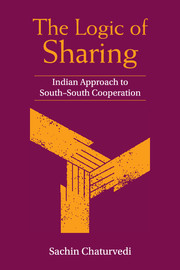Foreword
Published online by Cambridge University Press: 05 March 2016
Summary
India's development cooperation efforts began soon after the country gained its Independence in 1947. Indeed, the first recorded instance was somewhat earlier, dating from the pre-independence interim government formed in September 1946, when Jawaharlal Nehru, India's first Prime Minister, established a fellowship programme for trainees from China and Indonesia.
Although India was a pioneer in such initiatives between developing countries, there has been very sparse documentation or public debate on the genesis and evolution of its development assistance programme.
In the early years after independence, India played an active role in promoting decolonisation across the world. From its own experience it was aware that the political independence of the newly emerging, or ‘developing’, countries could be sustained only if they were also masters of their economic destiny. India's political leadership fashioned a dual approach to meeting this challenge. On one hand, the UN became a platform to mobilise an international consensus behind the proposition that economic and social progress in developing countries was an international responsibility to be implemented collectively through multilateral action. On the other hand, there had to be parallel emphasis on development cooperation between developing countries themselves, bilaterally as well as multilaterally through the UN. Newly-emerging countries should not be entirely dependent upon economic assistance from the developed world; they must also pool their own resources and capabilities to help each other. It was this process that became known as ‘South–South Cooperation’ (SSC) of which India was an early and enthusiastic proponent as well as practitioner. Propagated domestically as one aspect of solidarity and common ground between poor and developing countries, Indian assistance to the developing world found tacit political acceptance and support.
India worked very hard in multilateral forums to forge an international consensus on the principle that developed countries had an international obligation to support development in their former colonies and in newly-emerging countries, not as charity or a dole-out to the poor but rather as a partnership for peace and prosperity. It is for this reason that India has never accepted the donor-recipient relationship that has come to characterise overseas development assistance (ODA) in general; instead it has hewed to the idea of development partnership, whether for North–South or South–South cooperation.
- Type
- Chapter
- Information
- The Logic of SharingIndian Approach to South–South Cooperation, pp. ix - xviPublisher: Cambridge University PressPrint publication year: 2015



